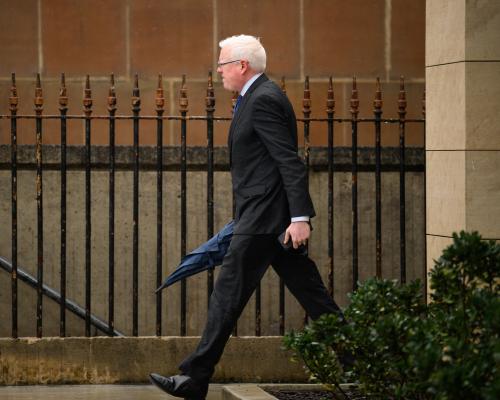
Tech companies have devalued the work of creative industries for years. The latest iteration of this is their insistence the AI models they plan to make lots of money from need the labour of all of human creation for free in perpetuity. It’s just surprising that the Productivity Commission appears to have bought into the argument – and caught the Australian government off-guard.
The Productivity Commission’s view on AI trained on the copyrighted works of others without compensation, published Wednesday, is that the horse has already bolted for big tech companies – that providing a text and data mining (TDM) exception in copyright law would not change much, but should be worth considering.
The commission stated that AI models, trained overseas on unlicensed copyrighted materials, are already used in Australia by larger institutions and a TDM exception is unlikely to change this.
The argument is that providing an exception could allow smaller local institutions to train their own models.
That argument would carry more weight if it wasn’t the giants of Google, Meta and Atlassian that have so far argued for carte blanche AI access to all available human data.
As the UK recently experienced, there is already almighty pushback from news, film, music and TV companies, as well as authors and publishers. This is the case for essentially any industry that might now be suddenly expected to hand over its labour for free to the same very large tech companies that spent millions of dollars to arguably seek favourable AI regulation (ie very little) from the Trump administration.
Music industry bodies in Australia have said a TDM exception here would “legitimise digital piracy under guise of productivity”.
It is hard not to view the push from tech companies cynically given recent political donations and the current AI job-hiring arm’s race. Companies are reportedly offering up to US$100m pay packets for AI researchers in a highly competitive jobs market, while at the same time crying poor when it comes to paying for the data that will make those AI models useful.
Many in media have been through waves of redundancies because tech companies promised the rivers of gold would return with a pivot to on-platform video, hopes suddenly dashed when Facebook deprioritised video.
When the Coalition government forced Meta and Google to negotiate with publishers for payment for their content, Meta temporarily removed news from its platforms in Australia, before eventually coming to the table.
When those deals came up for renewal, Meta had turned the tap off for news content appearing in people’s feeds, and argued news wasn’t important for the platform anymore.
The attitude to training AI models on the work of others seems no different.
The claim that the models are already trained and it is therefore too late to do anything about it ignores the question of happens next. News companies – including the Guardian, which has opposed the exception proposal in the UK – will remain a vital resource that AI will need to train on, to respond to growing user demand for the latest information.
But allowing AI to access to that offers very little in return to those companies if they aren’t paid. AI summaries in Google search results mean people now click through less and less to find the details in a news story. A recent study suggests a site previously ranked top in search results could see a 79% drop in clickthroughs.
Cloudflare – the internet infrastructure company that has launched a way to block AI crawlers from sites unless they pay up – has said the results are even worse in AI chatbots. As of June, Google crawled websites about 14 times for every referral, Cloudflare said, but OpenAI’s crawl-to-referral ratio was 1,700:1, and Anthropic’s was 73,000:1, Cloudflare said.
One can argue sites already do have an option to opt out: by including a “robots.txt” file on their website to say “don’t crawl my page”. But as Cloudflare points out, that amounts to little more than putting up a rules sign next to the pool.
The Albanese government appears to have been caught unaware that an overhaul of copyright law for AI was something tech companies have been pushing for – and something the Productivity Commission appears to be open to.
The treasurer, Jim Chalmers, referred questions on it to Tim Ayres, the industry and science minister. Ayres told ABC News Breakfast on Wednesday there were “no plans to make changes” in regards to copyright law.
But while the opposition has already come out strongly against the use of copyrighted material without compensation, Labor needs to figure out where it stands.
At a time when the government is championing its under-16s social media ban as “world-leading”, and with various new regulations facing the tech sector – from child protection, to paying news companies for news, to competition changes for Apple and Google app stores being floated – Australia’s potential surrender of all the content of human creation to the tech giants, for free, seems jarring.
To argue that without it we will “fall behind” seems to ignore years of regulators struggling to play catch-up with tech companies. Despite Bill Heslop-ian cries of “you can’t stop progress” from those who stand to gain the most, they may soon realise it won’t last when those whose content they need for AI cannot viably continue to produce it.
• Josh Taylor is Guardian Australia’s technology reporter







